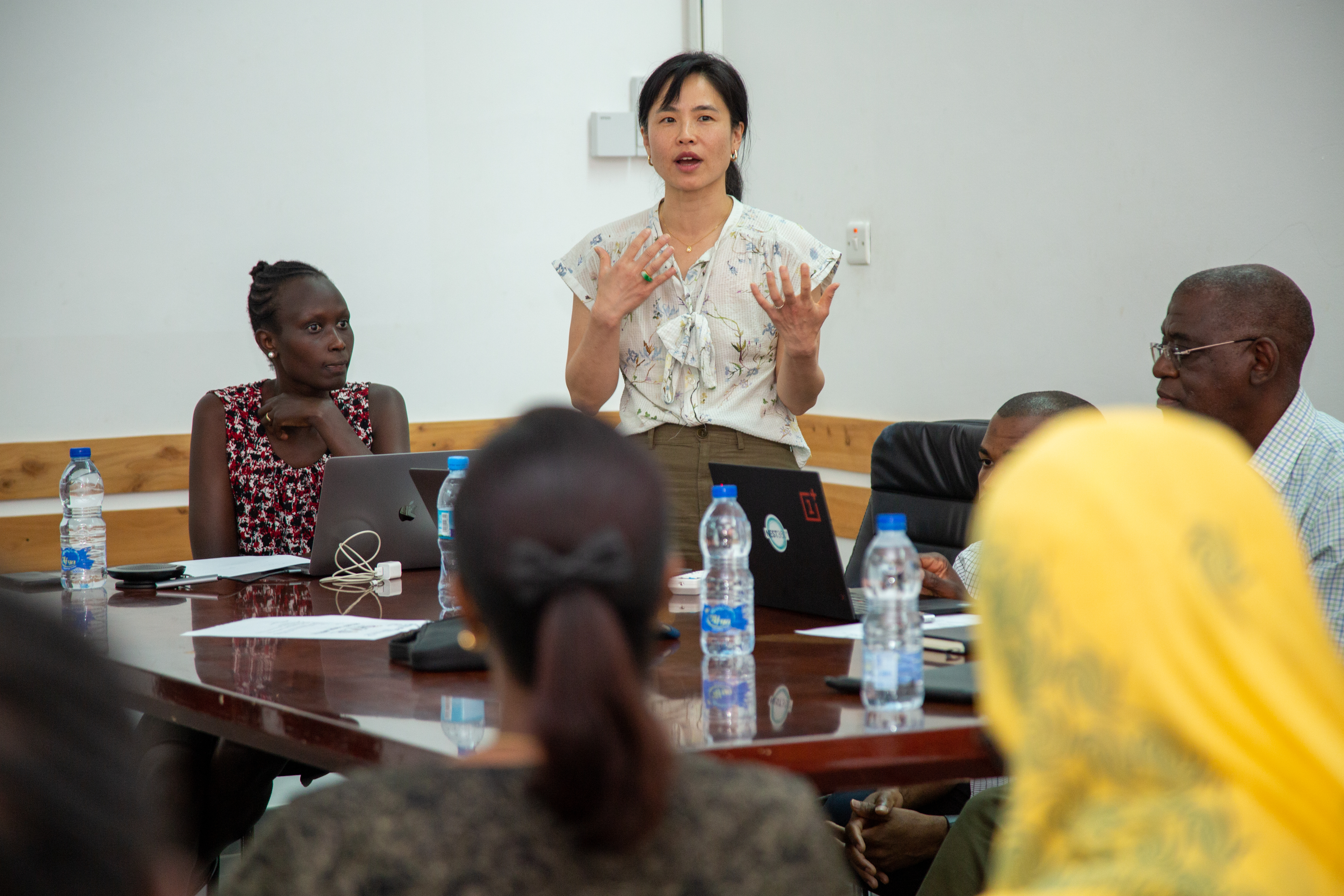
MEETING: CHILD Project team discuss progress on new malaria trial

Ifakara Health Institute and colleagues from Swiss TPH, Stanford University and the University of California San Francisco (UCSF), who are implementing the Child Health and Infection with Low Density Malaria (CHILD) project have held an annual meeting to discuss the project’s progress. The team met at Ifakara’s Bagamoyo offices in Kingani on February 7, 2023, and also virtually via Zoom.
On the agenda for the project’s annual meeting was for the team involved in the study to get to know each other and the roles they would play in the project. The CHILD project is a five a year study (April 2022-March 2027) that will assess the long-term health and socioeconomic impact of interventions targeting low-density malaria infection (LMI) among children in Tanzania.
During the meeting, the team reviewed the objectives and approach for the overall study and sub-studies, discussed updates on study preparations, reviewed clinic, field, laboratory, and data workflows, reviewed the monitoring plan, reviewed potential risks and mitigation strategies, and reviewed the analysis and dissemination plan.
Ifakara's Senior Researcher, Dr. Ally Olotu, also the Principal Investigator of the CHILD project gave an overview of the study and noted how the study findings could potentially change the paradigm of detecting and treating of LMI and eventually lead to policy and practice changes.
Associate Professor, Dr. Michelle Hsiang from the Malaria Elimination Initiative, Institute for Global Health Sciences, UCSF, and also the US Principal Investigator of the CHILD project highlighted the significant impact the study which aims to determine the health impact of detecting and treating LMI on long-term child health and wellbeing.
“Current strategies do not target chronic, low-density malaria in children and most health facilities’ current standard of care misses low-level infection, particularly in lower transmission settings. Through this study, we anticipate that detection and treatment of LMI in children will improve long-term child health,” said Dr. Hsiang.
The CHILD project is implemented by Ifakara Health Institute in collaboration with researchers from the University of California San Francisco (UCSF), Swiss Tropical and Public Health Institute (Swiss TPH) and Stanford University with funding from the National Institute of Health (NIH).
